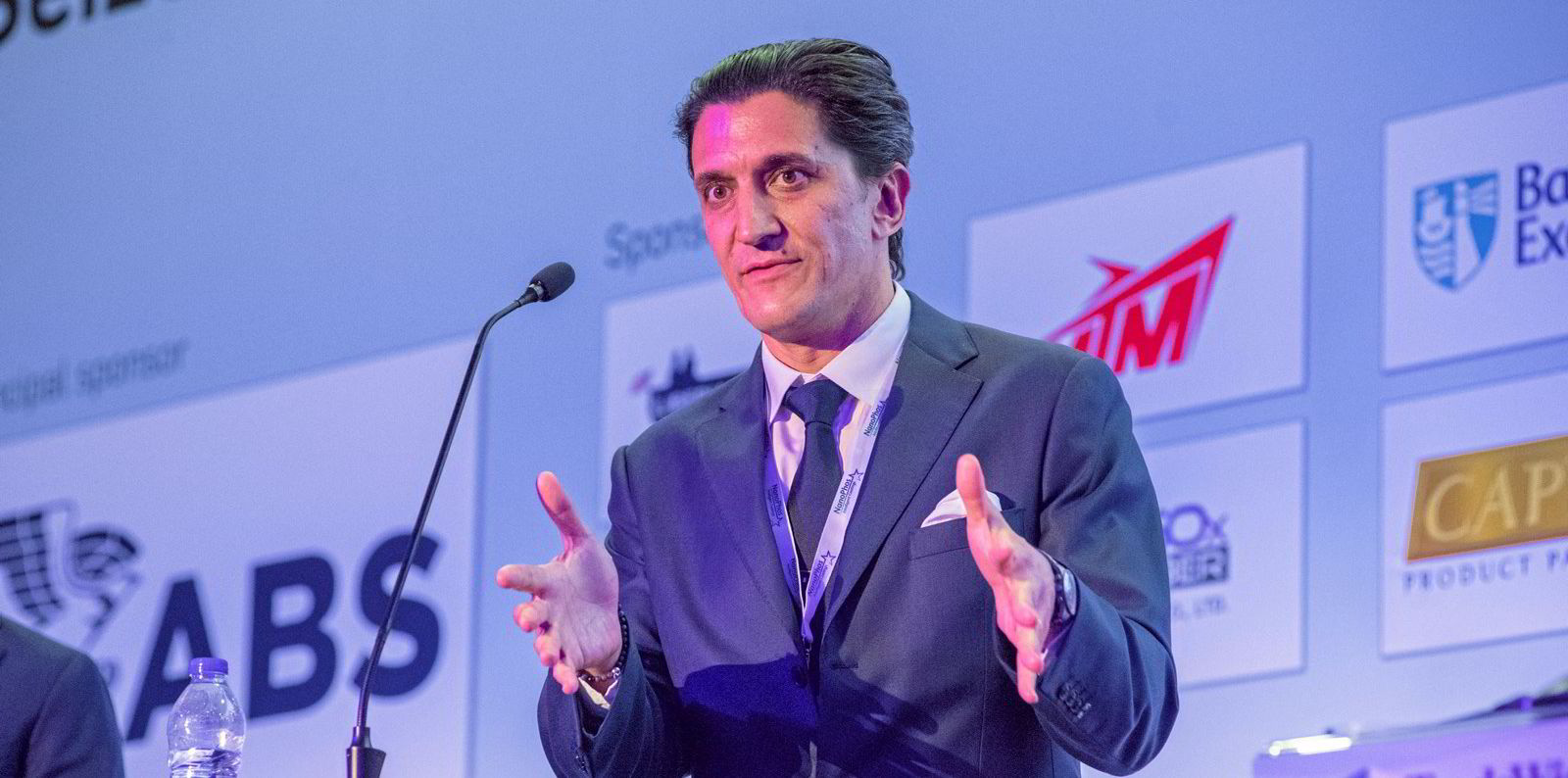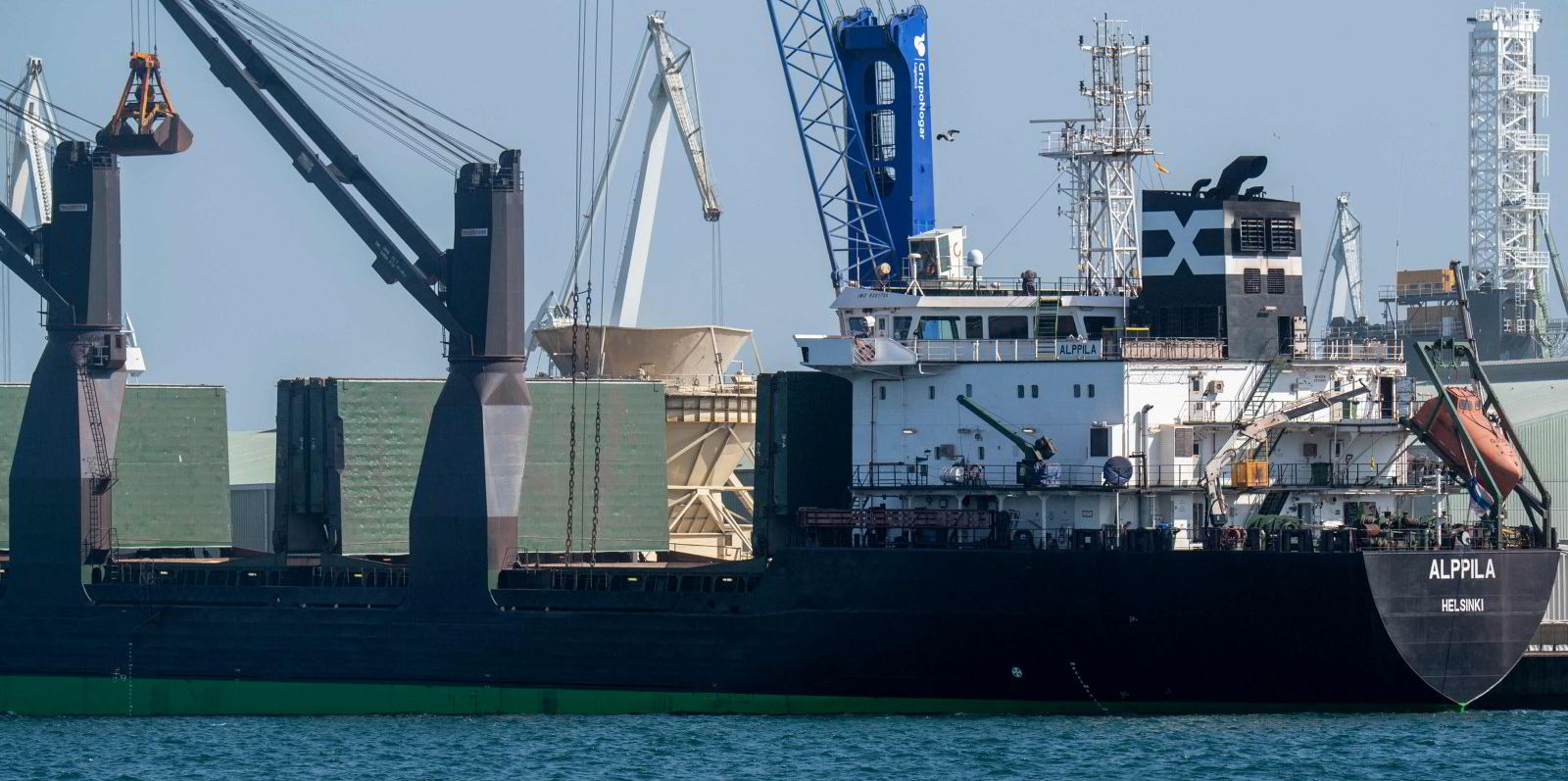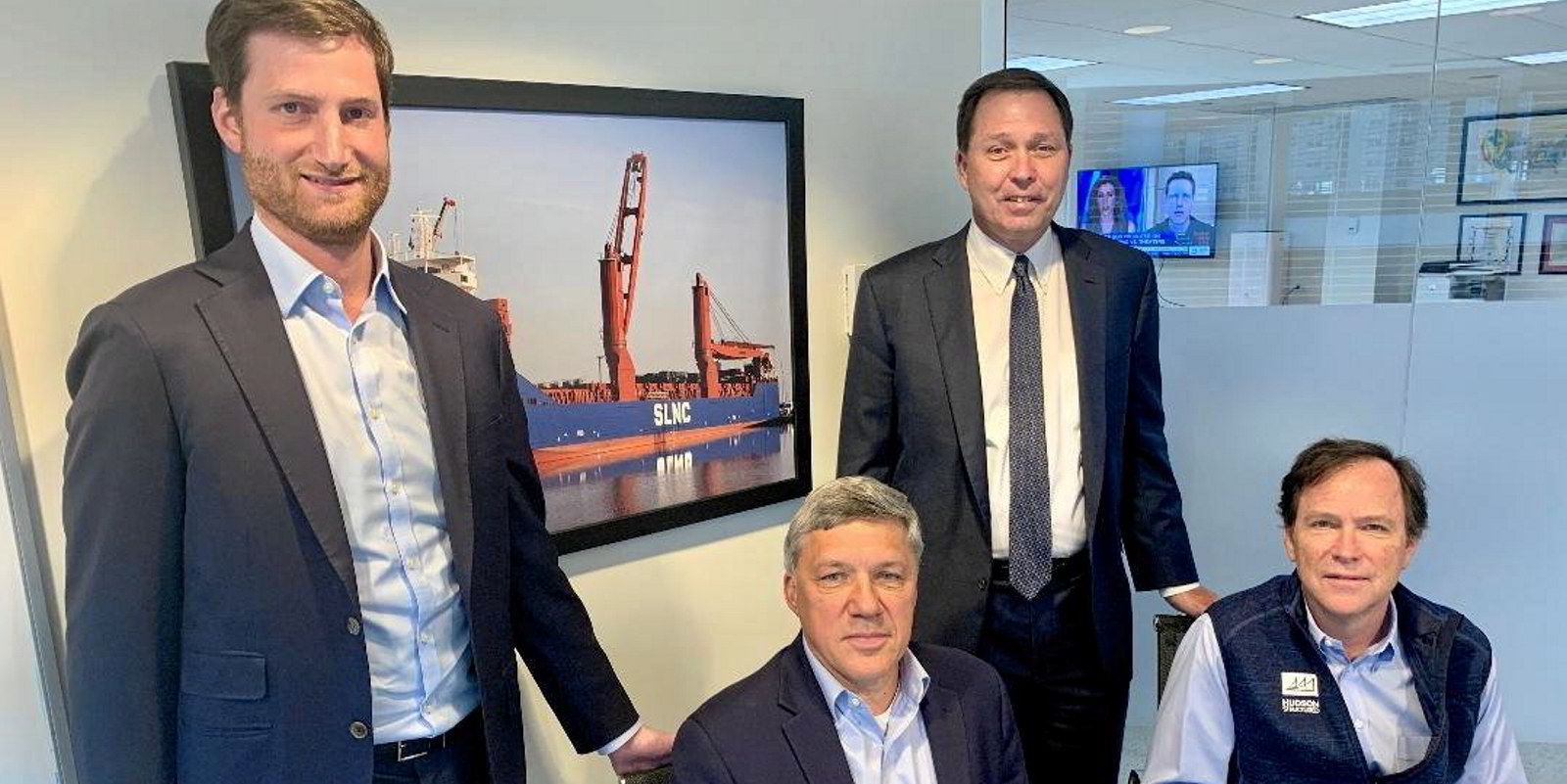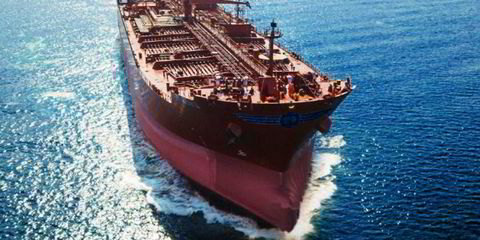Disruptions to coal trade flows mean that capesize spot rates will not see sudden spikes later this year but steady rises, according to John Michael Radziwill.
Meanwhile, the CEO of bulker manager C Transport Maritime (CTM) said it is “pretty difficult” to take a bearish outlook for dry bulk over the next 18 months.
GoodBulk, the public arm of CTM, has 100% exposure to the spot market. That is how confident GoodBulk, which has a fleet of capesizes and one panamax, is about the dry cargo market this year.
“We don’t think you’ll see short super-spikes in capesize rates when the Brazilian iron ore exports come. We think you’ll see more steady rises — which is why we want to keep more ships spot by the way,” Radziwill told TradeWinds.
A lot of coal has been coming on capesizes to the European continent on long-haul journeys from the Pacific.
This is offsetting the undersupply of ships in the Atlantic that would usually be expected at this time of year, which often leads to a “pinch” in vessel supply and a pop in spot rates as Vale’s iron ore exports ramp up, he said.
“Rates spiked up to $86,000 a day, for example, last beginning of October 2021. They stayed there for a week and then they went back down to $40,000, $50,000 [per day],” Radziwill explained.
“You had what I call a super-spike, which lasted for a very short period of time because there was a dearth of ships in the Atlantic. And then everything kind of calmed down.”
Radziwill foresees “a nice rise” in rates this year, but no super-spikes to levels like $85,000 per day.
“If you had $86,000 a day for two days, you’re gonna have between $50,000 and $60,000 a day for two months, that’s the difference,” he said.
“It’s interesting because you don’t have that [supply] pinch — and what those pinches do is they kind of get everyone off-kilter and that’s why they usually just break. So this is actually a more efficient market.”
Fundamentals
Capesize supply-demand fundamentals mean that CTM has a “pretty positive” outlook for the segment for the next 18 months or so, Radziwill said.
Infrastructure reforms are coming to fruition worldwide, he said, especially in China, which is issuing more infrastructure bonds right now to stimulate the economy post-Covid.
“That’s what they did before, that looks like what they’re gonna do now — so that should be very supportive for the hard commodities that go into capes, the coal, iron ore and bauxite,” he said.
For soft commodities, the immediate concern is food security and the loss of grain volumes from Ukraine and Russia.
“We were bit worried about the shift in trade flows when the war started,” he said.
“We’ve been pleasantly surprised in the sense that the shift in dry bulk trade, especially the soft commodity trade, has happened pretty efficiently and it looks like it’s going to generate more tonne-mile demand. Again, kind of a supply story coming out of the market with a longer voyage.”
No trade with Russia
CTM and GoodBulk vessels will not call in Russia, Radziwill confirmed.
“I don’t think it’s right — morally and ethically — to support a regime that has threatened nuclear war and the extinction of the human race, so we’re going to try and not do that,” he said.
“Having said that, we act for a lot of different people and our job is to give a service to our customers, i.e. the shipowners, and we’re empowered by them and the classification to always act in their best long-term financial interest.
“We think that if even there’s a lot of trades with Russia that are legal and non-sanctioned right now, the second and third-order consequences of having done that will really commercially handicap you down the road.”
These commercial handicaps could comprise being blacklisted by enforcement agencies like the US Treasury’s Office of Foreign Assets Control, he said. And sanctions are not going to go away.
“I think that it might not be illegal, but it could be wrong — and if it’s wrong, down the line you’re gonna pay for that more than, I’m sure, you gained from whatever trade you’ve done with Russia.”






